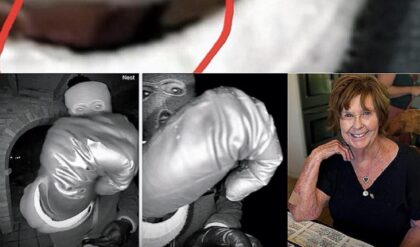Leonardo DiCaprio has captivated the screen for over 30 years, with nine of his major roles being intensive looks into the stories of real-life figures. DiCaprio began his career as a preteen with small roles in commercials and tv shows like Parenthood, until his breakout into movies with This Boy’s Life in 1993. Since then, DiCaprio has become one of the biggest stars in modern history, finally winning the 2016 Oscar award for Best Actor nearly 25 years after his first nomination.
DiCaprio first achieved critical acclaim for his role as an autistic boy Arnie Grape in 1993’s What’s Eating Gilbert Grape, a role that garnered him his first Oscar nomination for Best Actor in a Supporting Role at only 19 years old. A few years later he launched into international stardom with his main role as Jack in Titanic, a film that became the highest-grossing movie at the time. Titanic won the Best Picture award the next year and turned Leo into both a full-fledged movie star and a viable lead for big-budget movies of renowned directors like Martin Scorcese, Quentin Tarantino, and Christopher Nolan.
Aside from playing real-life historical figures, DiCaprio was chosen to play some of the most famous historical fictional characters like Romeo in Romeo + Juliet and Jay Gatsby in The Great Gatsby. These roles serve as exhibits of how well Leonardo DiCaprio has been able to take historical figures and translate them flawlessly onto the screen as tributes to some of the most interesting personalities and narratives to occur in fictional and real life. With this in mind, here’s every real-life figure Leonardo DiCaprio has played for the big screen.
This Boy’s Life – Tobias Wolff
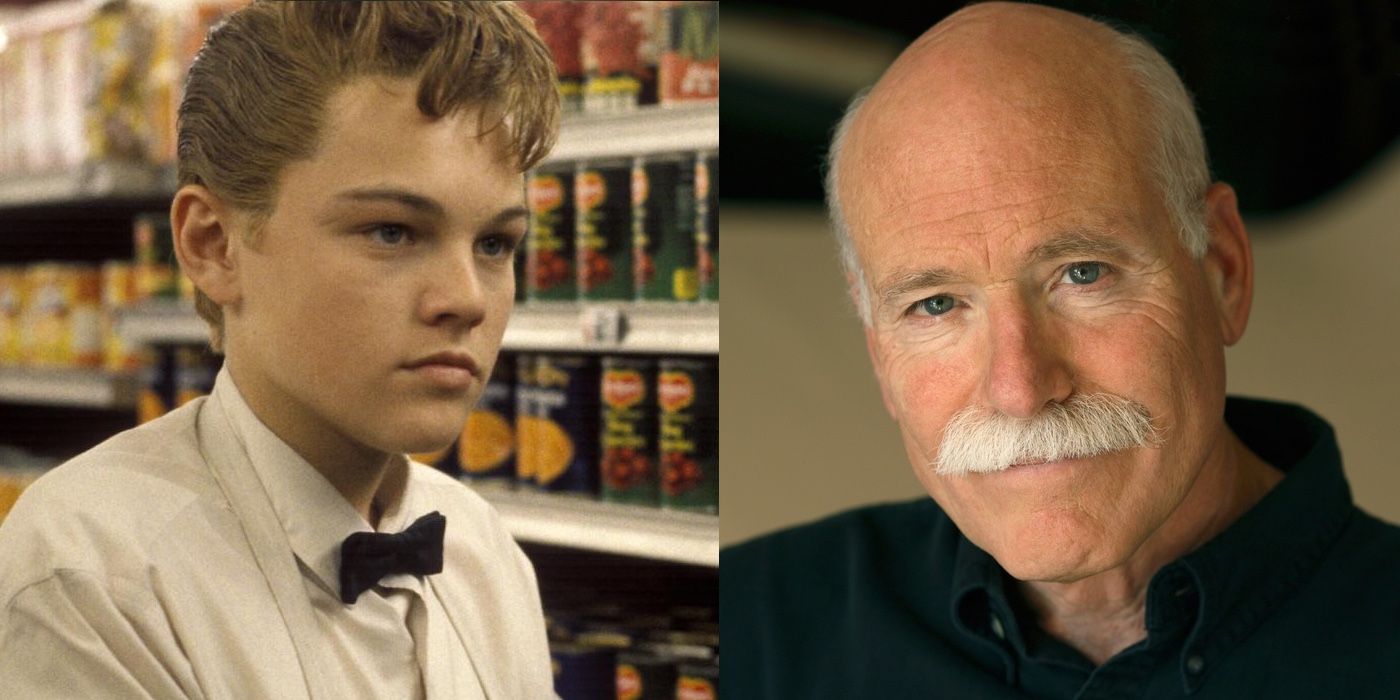
In Leonardo DiCaprio’s first major film role for This Boy’s Life (1993), he starred opposite Robert De Niro as a young Tobias “Toby” Wolff. The story is based on writer Tobias Wolff’s memoir about his experiences as a child when his mother married his physically, verbally, and emotionally abusive step-father. At such an early age and stage in his career, DiCaprio was given a role with substantial depth and emotion that required a talented actor to bring to life the true harrowing situation of a young boy. Considering DiCaprio was rumored to have been hand-picked by Robert De Niro for the role, it’s obvious his talent shined early on.
The real Tobias Wolff went on to become a successful novelist, teacher, and short-story writer. His memoir, This Boy’s Life, became his best-selling piece of writing, which is why its casting garnered actors like De Niro and a young DiCaprio. While the film itself wasn’t critically acclaimed, it was instrumental in jumpstarting the career and future depth of roles for DiCaprio.
The Basketball Diaries – Jim Carroll
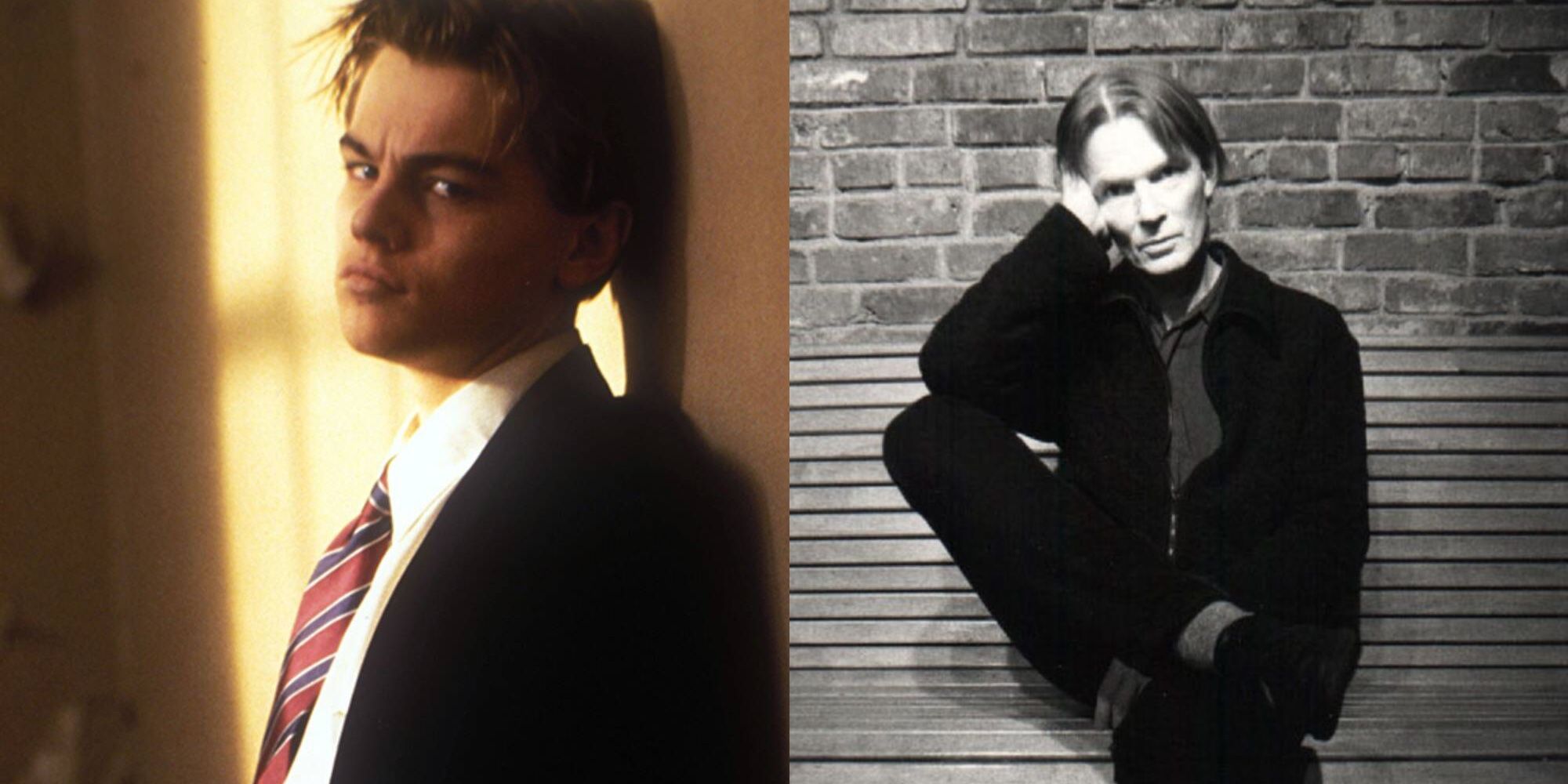
DiCaprio stars in The Basketball Diaries (1995) as Jim Carroll, whose autobiographical novel inspired the film. As only his fourth movie, DiCaprio was continuing his streak of hard-hitting roles of emotionally tortured teens with troubled backgrounds. The movie depicts real-life Jim Carroll’s teen years as a successful basketball player and aspiring writer who happens to have a dangerous addiction to heroin and criminal tendencies. The Basketball Diaries wasn’t well-received by critics, but DiCaprio’s intense portrayal of Jim Carroll’s youth was widely praised.
Despite his jail sentence at such a young age, the real Jim Carroll worked on recovering from his addiction and became a successful writer. He began working for Andy Warhol, publishing poetry in magazines, and writing memoirs on his troubled teenage and later New York years. What isn’t explored in the movie was Carroll’s talent in music, as he later formed a punk-rock band with a successful single “People Who Died” that was featured in movies like E.T. the Extra-Terrestrial, Dawn of the Dead, and Basketball Diaries.
Total Eclipse – Arthur Rimbaud
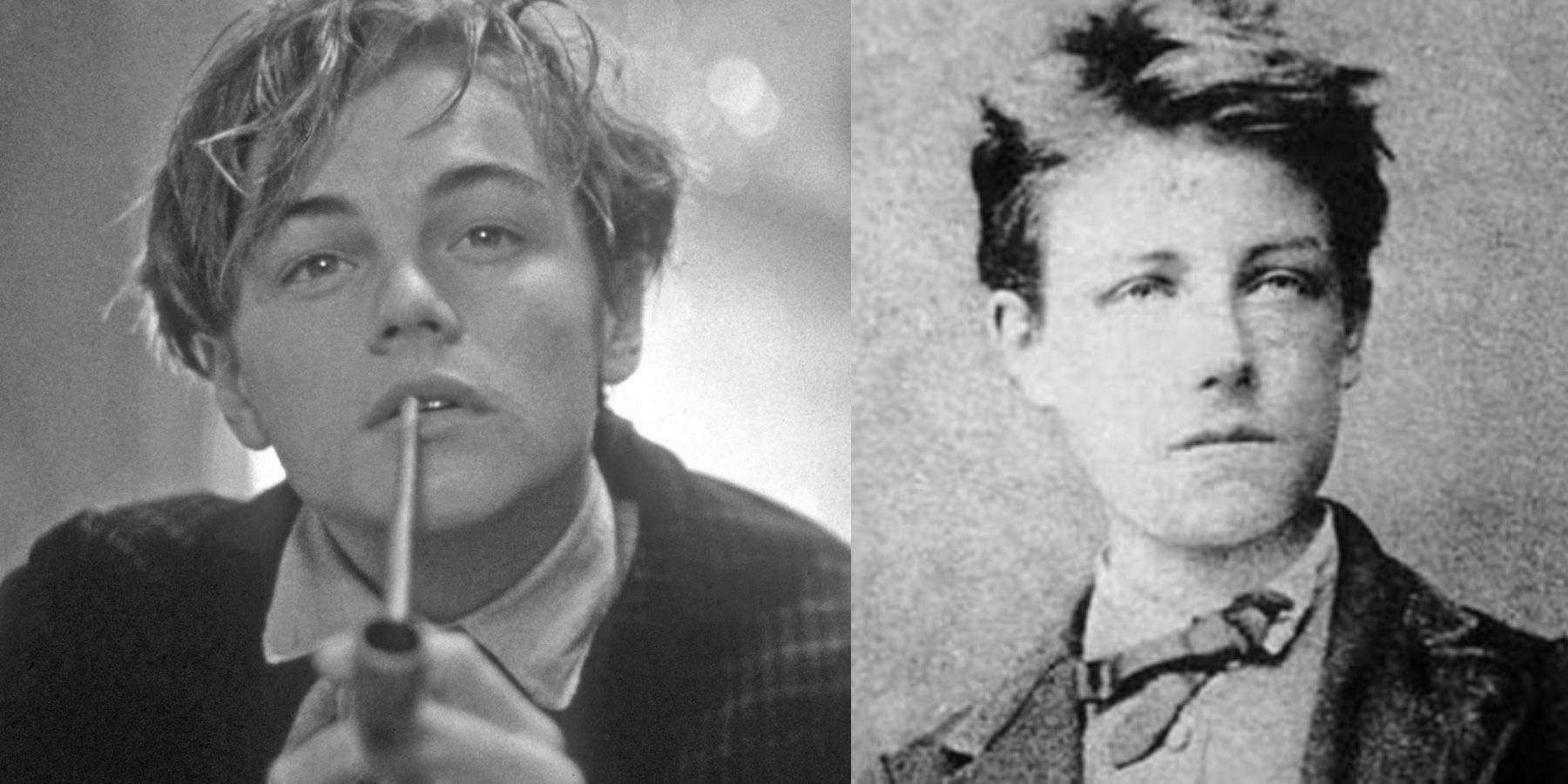
Premiering in 1995, Leo also took on the role of real-life 19th-century French poet Arthur Rimbaud in Total Eclipse. DiCaprio plays a troubled writer who causes a scandal when engaging in an emotional and sexual relationship with an older, married male poet. The role is different from what DiCaprio had previously played, as Rimbaud was a sadistic and manipulative man who was a much less sympathetic personality than DiCaprio’s previous real-life characters.
Arthur Rimbaud was a complicated figure active in French high society in the 1800s and became posthumously praised for his contributions to surrealism and symbolism in poetry. DiCaprio’s portrayal is quite accurate to the real Rimbaud, who died at a young age from aggressive bone cancer. Total Eclipse wasn’t well-received and was a box-office bomb, possibly because Rimbaud was only really well-known by French society and poetry aficionados.
The Man in the Iron Mask – King Louis XIV
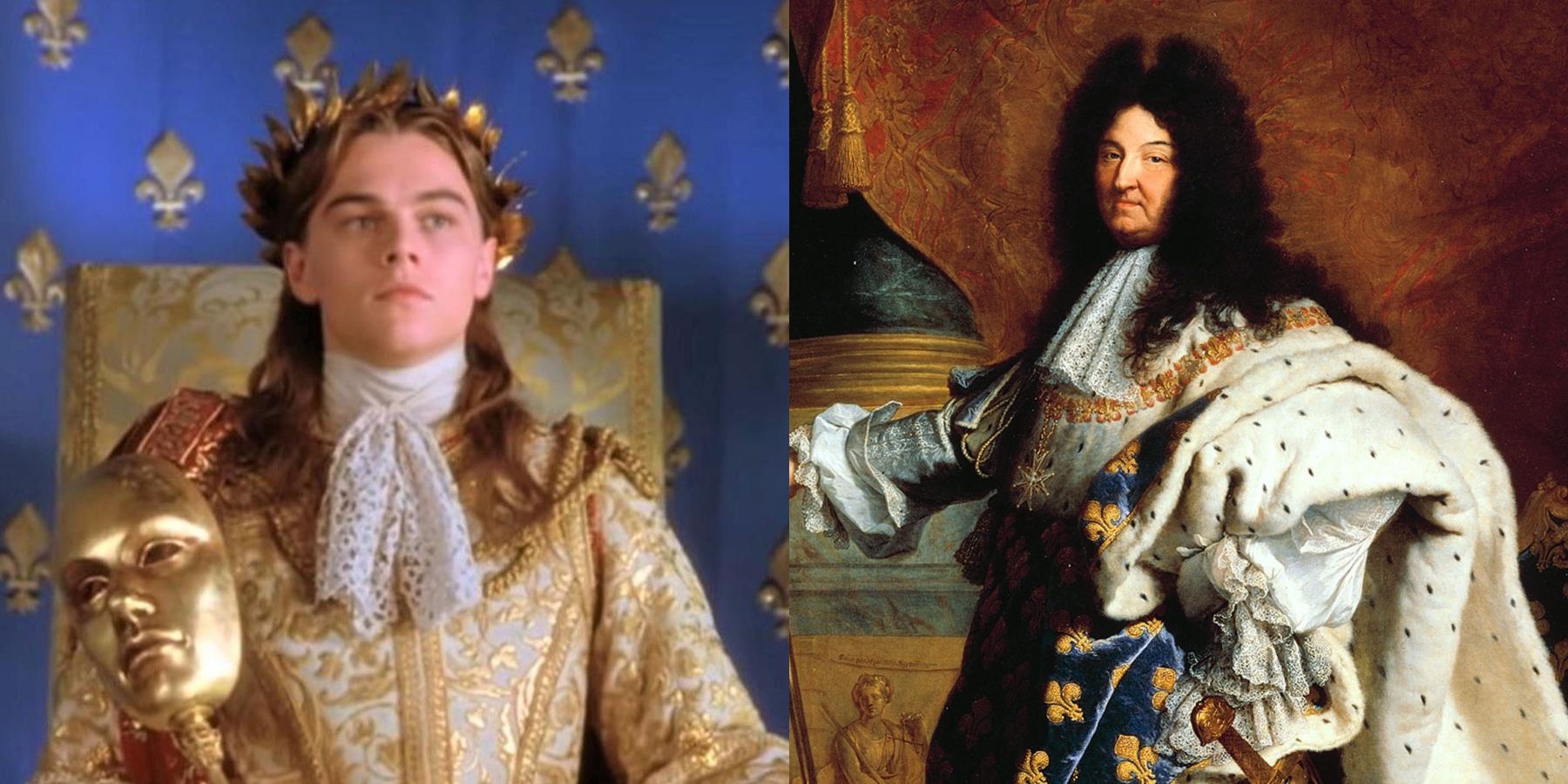
While Leonardo DiCaprio’s role of King Louis XIV was based on historical assertions of his reign and personal life, the role of Phillipe Bourbon is unconfirmed as the real “man in the iron mask” or an actual representation of the real person. King Louis XIV never had a twin brother but did have a younger brother Phillipe I who was a part of House Bourbon, though he was never sent away or involved in a plot to murder his brother. On the other hand, The Man in the Iron Mask was criticized for other historical inaccuracies of King Louis XIV, including his marital status, peaceful reign, and familial connections.
Catch Me If You Can – Frank Abagnale, Jr.
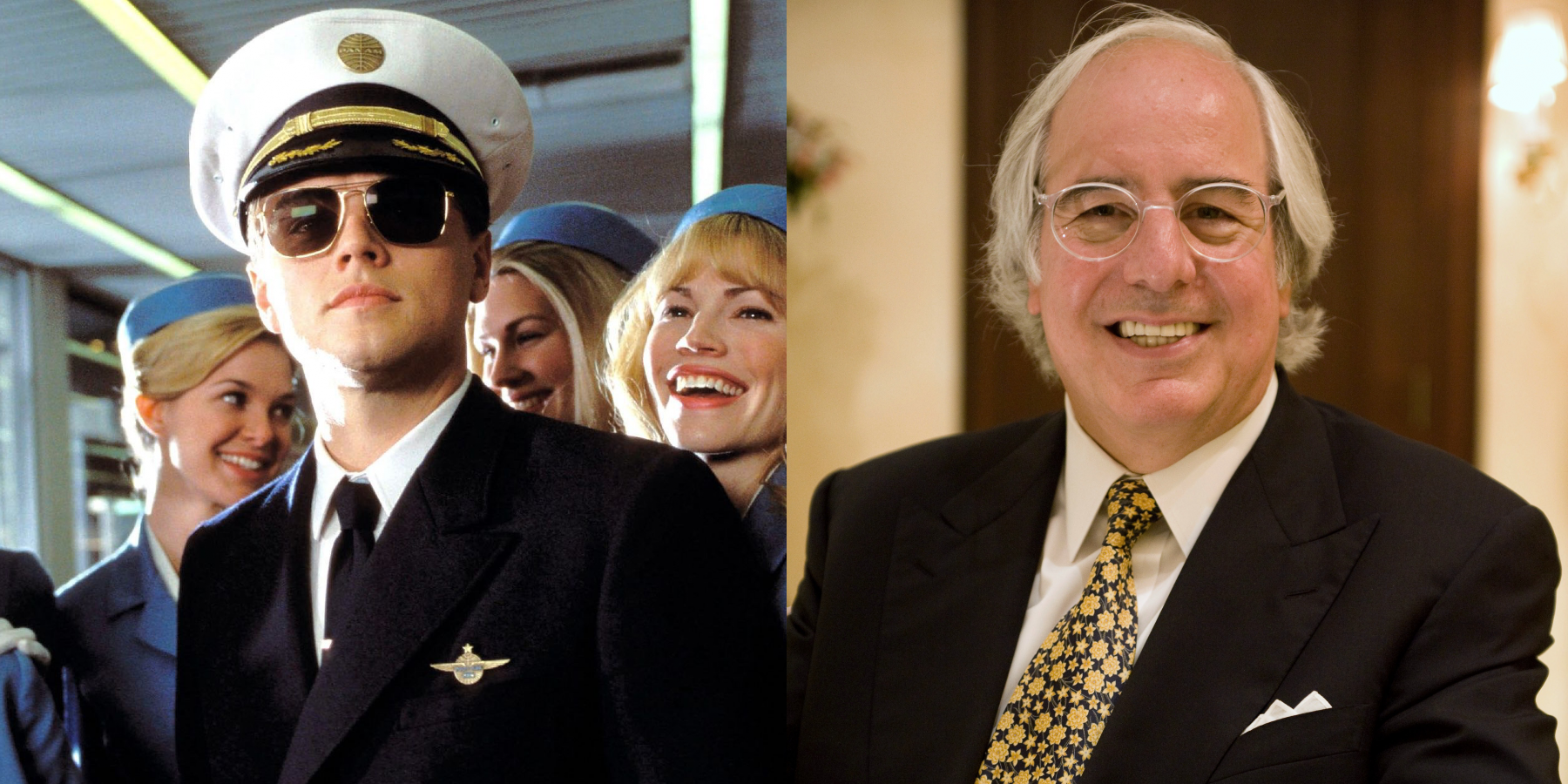
Based on another autobiography, Leonardo DiCaprio takes on the real-life story of young Frank Abagnale, Jr. opposite Tom Hanks in Stephen Spielberg’s Catch Me If You Can (2002). This role is where Leo began his streak of criminally immoral, yet likable real-life characters that were much more present in the American cultural conscience. Leo portrays Frank from the time he’s a teenager beginning small cons to survive until he moves on to big schemes that have him hunted by the FBI and jailed in his early 20s. According to IMDb, the real-life Frank didn’t believe DiCaprio was suave enough to play him until seeing his performance in cuts of the film.
Frank Abagnale, Jr. is one of the most prolific con men of all time, especially due to his extremely young age and high-risk schemes. He flew millions of miles for free while impersonating pilots, continually forged high-number checks, and was internationally chased by the FBI. Abagnale, Jr. was finally caught and arrested by the FBI in France in 1969 before being extradited to America to serve 4 years in jail. After helping an agent solve fraudulent cases on his visits, the FBI decided to release him from jail to work for them investigating scams and frauds. Frank later became a security consultant and has been advising the FBI for more than 40 years.
The Aviator – Howard Hughes
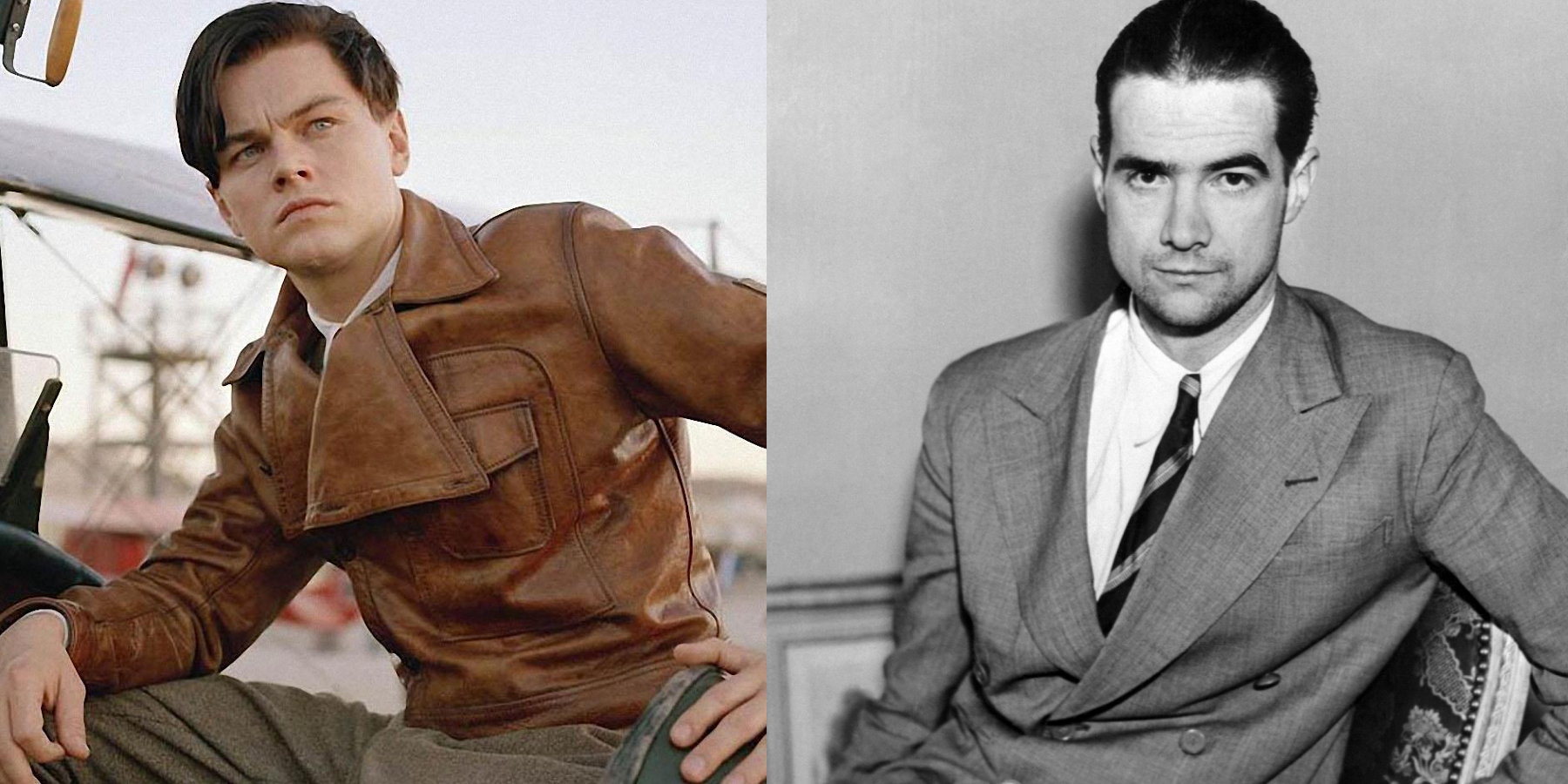
DiCaprio and Scorsese worked closely with a UCLA doctor to accurately portray a person suffering from OCD. He revealed that he spent hundreds of hours studying OCD material, real-life OCD patients, Hughes’ mannerisms, and how to correctly portray Hughes’ drastic downfall from his disorder. DiCaprio’s intense research for his performance paid off, receiving critical acclaim and another nomination for Best Actor.
J. Edgar – J. Edgar Hoover
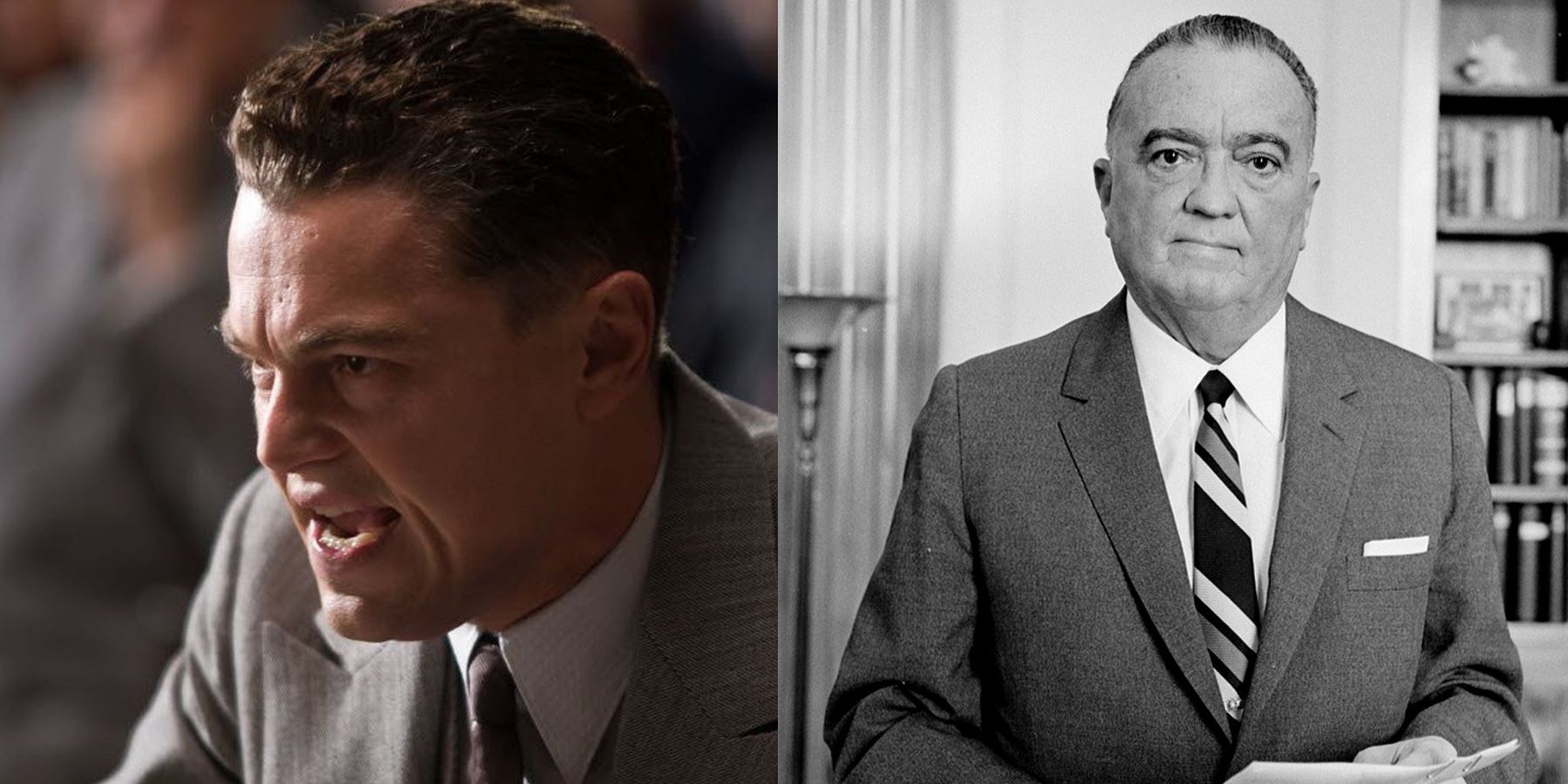
The Wolf of Wall Street – Jordan Belfort
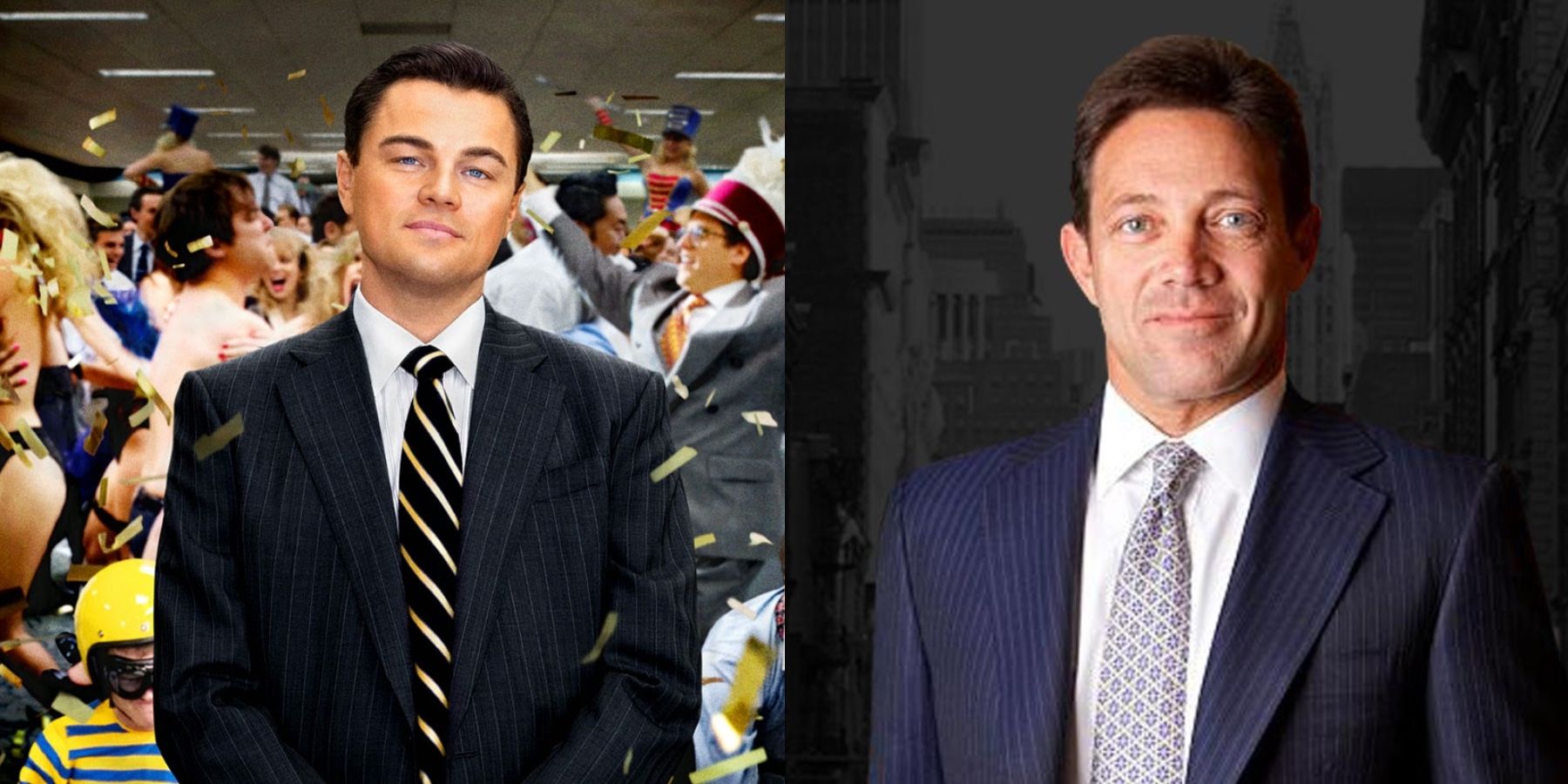
As one of Leonardo DiCaprio’s most popular and controversial roles, he portrayed corrupt Wall Street stockbroker Jordan Belfort in Scorcese’s 2013 biographical black comedy The Wolf of Wall Street. Based on Belfort’s 2007 memoir, the film depicts Jordan Belfort’s beginnings as a morally upright beginner in the financial sector of Wall Street, until he rampantly becomes seduced by the drug and sex-filled Wall Street culture. As Belfort’s career and company grow, he becomes increasingly rich, corrupt, morally ambiguous, and fraudulent until his arrest by the FBI.
Considering Jordan Belfort had still been active in the culture and a widely known figure at the time of the movie, DiCaprio’s role and the film itself accumulated substantial attention. The movie was extremely successful, though criticized for glorifying Belfort’s criminal lifestyle and immoral activities. DiCaprio, according to Deadline, has argued against its glorification, implying the movie is a cautionary tale of the dangerous and wrong aspects of wealth and excessive lifestyles. Jordan Belfort mentioned to London Real that the portrayal of his excessive years was accurate, though his drug problem was much worse than in the film.
The Revenant – Hugh Glass
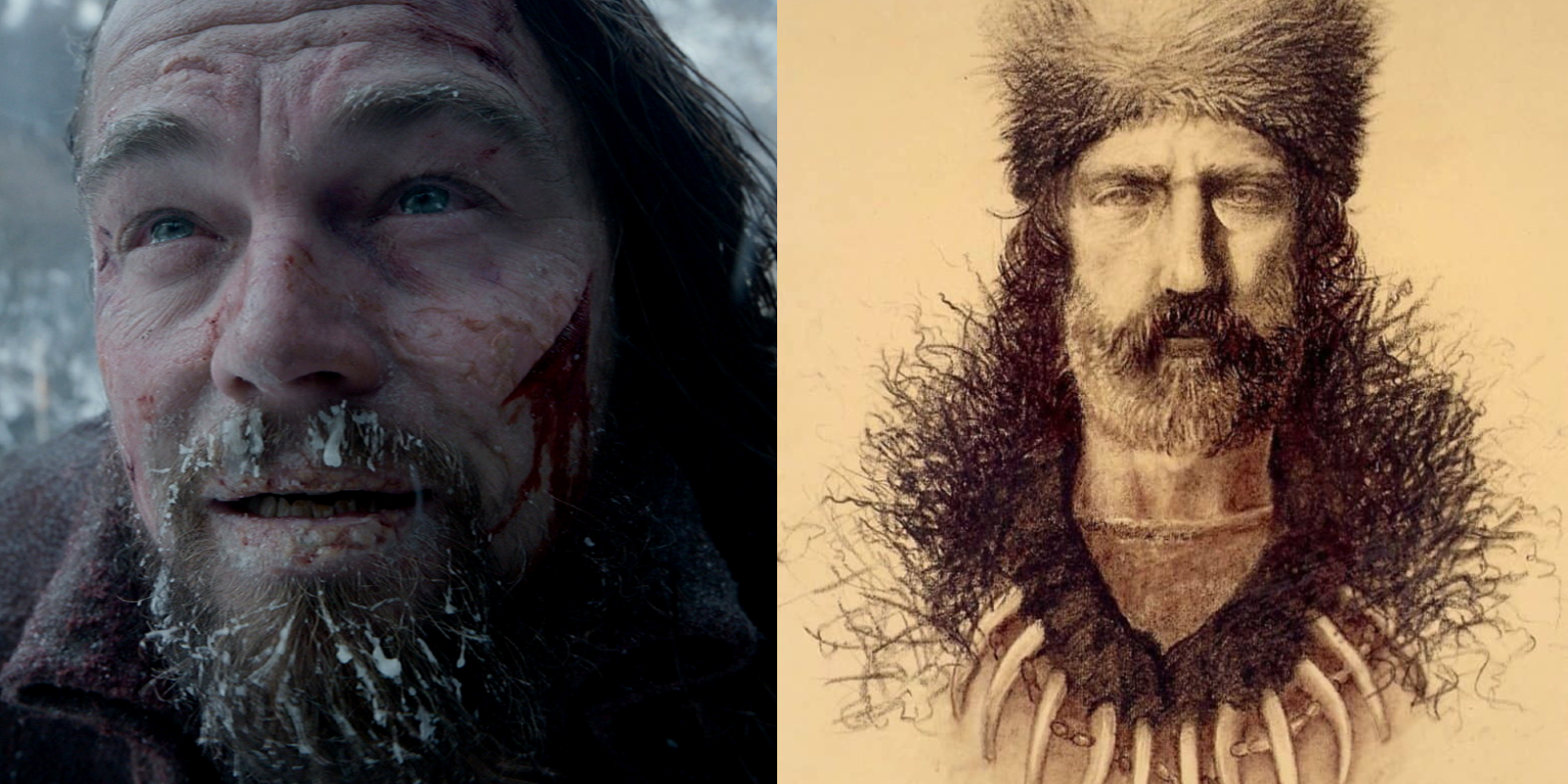
DiCaprio’s most recent portrayal of a real-life figure was Hugh Glass in 2015’s The Revenant, a role that finally won him the Oscar award for Best Actor. The movie is based on a novel about the harrowing life of frontiersman Hugh Glass in the year 1823, where he is left to die during General Ashley’s expedition after being mauled by a bear. He incredibly survives his abandonment without food or weapons, pursuing the men who left him.
Since the historical event took place nearly 200 years ago and there are few first-hand resources, much of Hugh Glass’s journey is fictionalized. In real life, he never had any children and never ended up killing those who abandoned him. Glass forgave one of the men for their ignorance because of his youth, and decided not to kill the second because he found out he was in the United States army, and Glass would have been arrested for killing a U.S. soldier. Considering the final confrontation with Leonardo DiCaprio and Tom Hardy’s characters is one of the film’s most memorable scenes, the change likely was important for the film’s dramatic intent.

